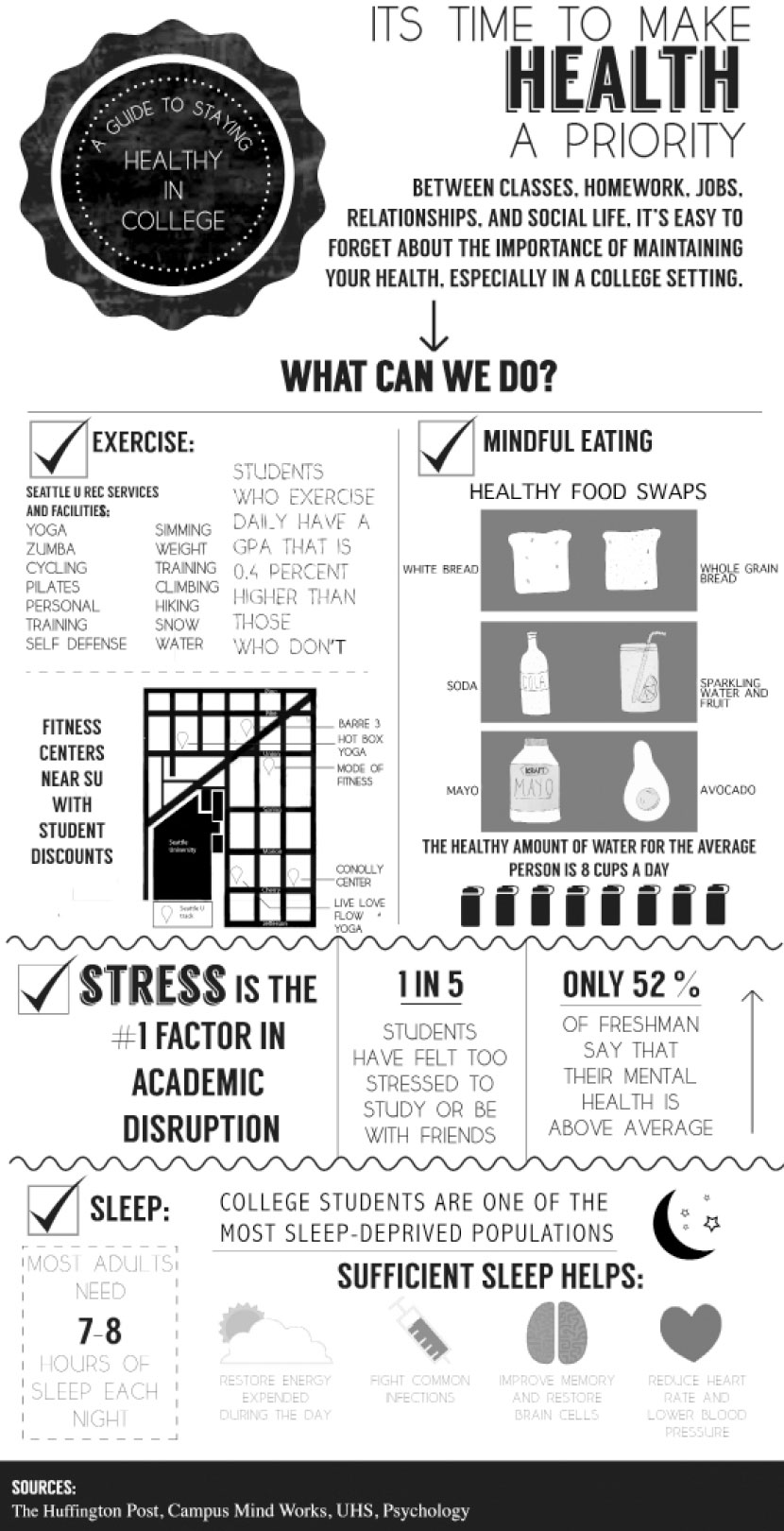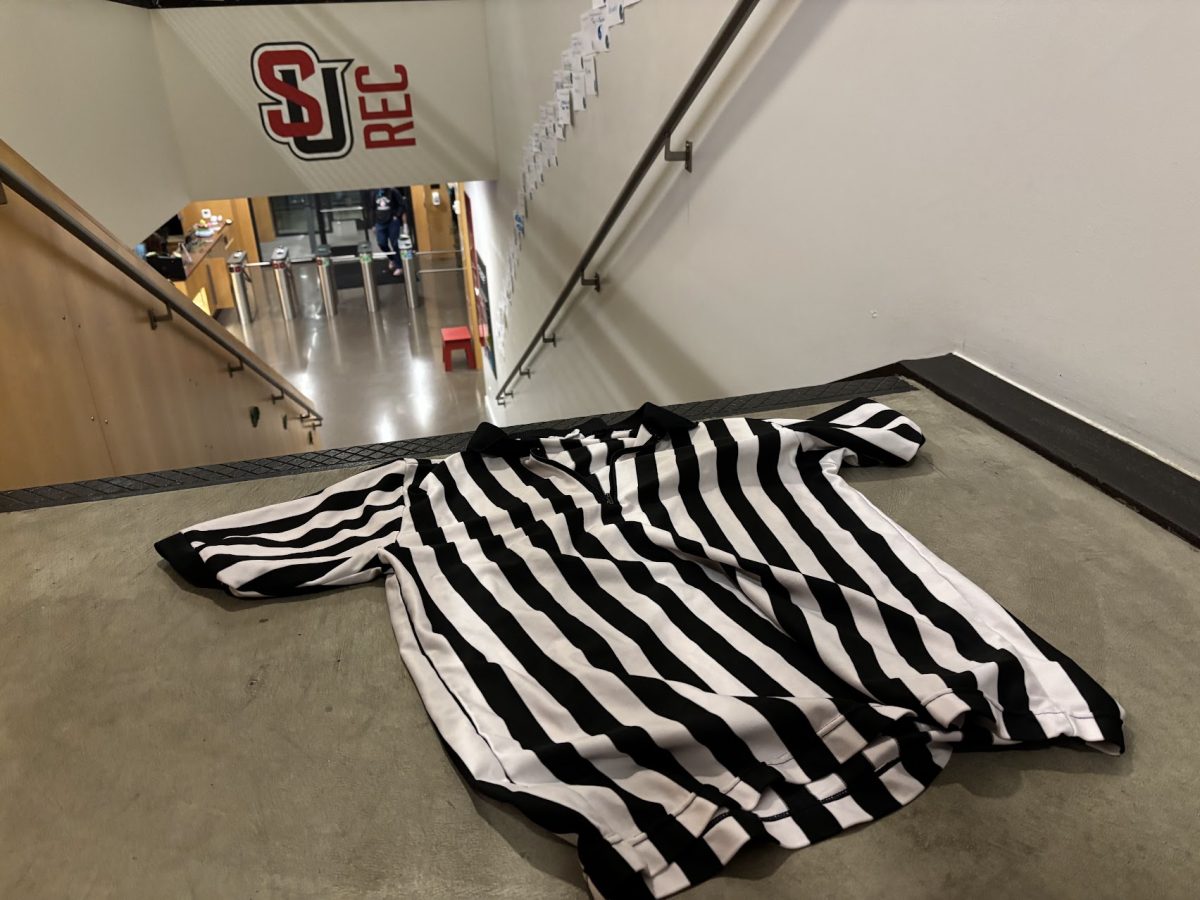Ah, fall, the time of year when leaves change, everything tastes like pumpkin and excitable freshmen arrive at college for the first time, looking bright-eyed and bushy-tailed. One of the strangest things about college is the sudden “adultness” of life, especially from a health perspective. Sure, in some cases parents may still pay the bills, but the responsibility to stay healthy shifts completely to the student. After eight months of unhealthy eating, drinking and all-nighters can take a serious toll on overall health.
We have compiled this catalogue of advice and helpful tips for maintaining health and wellness over the course of the year.
Activity
According to the American Journal of Preventative Medicine, the biggest factor in weight gain for college freshmen may be the overall drop in activity level. When students go to college, they often often aren’t moving around as much as they were before high school graduation.
Gretchen Peyton, RD, a dietitian at the Center for Partnership Medicine at Northwestern Memorial Hospital in Chicago, said that “the reason why the weight gain usually happens is due to lifestyle changes—new environment with new food choices, added stress of being newly away from home, and new changes in physical activity.”
University Recreation (URec) also offers students several ways to stay fit while at Seattle U. Not only do students have unlimited access to the fitness center with their student ID cards (go there, your tuition is paying for it), but through UREC students have access to other fitness options as well.
According to the URec site, this quarter’s group fitness classes range from Zumba to power yoga to cycling. The classes come at no cost and drop ins are welcome, so you won’t break a sweat figuring out how to pre-register.
Nutrition
The convenience of having so much food just a swipe away can be uncharted territory for new students. Still, the university works to keep the food healthy and provide variety.
“At the salad bar we try to showcase a lot of fresh vegetables, as well as grains. We also do a lot of beans as well, so you can still get some protein from there,” said chef Geoff Velasco. Bon Appetit also emphasizes the use of fresh vegetables, fruits, and whole grains as featured ingredients. The Healthy Cooking Initiative, taken on by the company in January 2007, underscores the idea that the use of healthy ingredients is key to improve customers’ health.
Mental Health
Some students may also suffer from health problems that are less physical and more psychological. Coming up to drizzly Seattle from California, Hawaii or even Oregon can be a dramatic change of pace for some students, and it’s important to make sure you’re getting the necessary nutrients to avoid Seasonal Affective Disorder and other health issues.
According to a study in the University of New Hampshire Inquiry Journal, “multivitamin users at the University of New Hampshire have a healthier diet than non-users. Multivitamin usage is thought to be part of a clustering of healthy behaviors that may contribute to better overall health.” Based on Seattle U’s geographical location, students should find a multivitamin that contains that contains vitamin D to make up for a lack of sun exposure.








![All My Favorite Soccer Players Are Retired [OPINION]](https://seattlespectator.com/wp-content/uploads/2025/03/Screenshot-2025-03-05-at-20.37.13-1200x783.png)